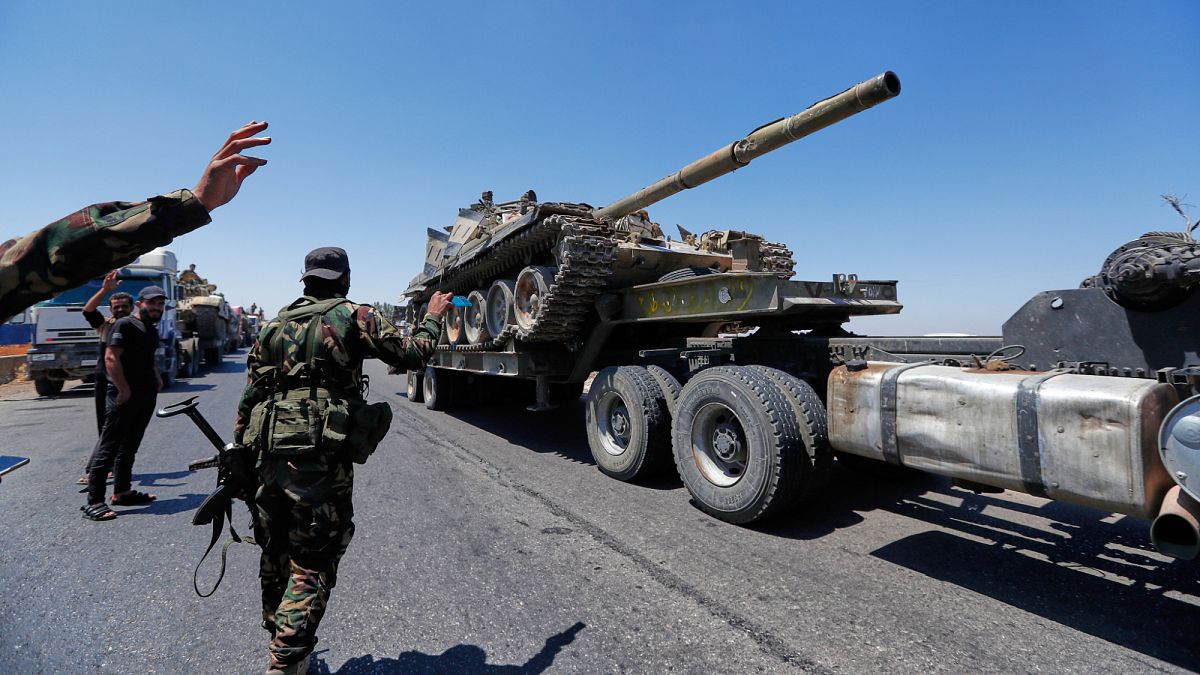

In recent developments across the Middle East, multiple regions are currently experiencing significant upheaval, driven by a variety of ongoing conflicts and strategic challenges. In Syria’s southern province of Sweida, recent violence has brought to the forefront long-simmering sectarian tensions. The escalation began with reciprocal kidnappings involving the Druze minority and Sunni Bedouins, spotlighting the fragile post-ceasefire atmosphere in the area. These local tensions were further compounded by an Israeli airstrike, reportedly resulting in numerous casualties and exacerbating the already volatile situation.
The local Druze leadership has voiced disapproval over these developments, pointing fingers at the Syrian government for allegedly violating agreed ceasefire terms. This breach has further strained the coherence of local governance and security efforts, as leaders attempt to re-establish a sense of order and safety amongst the populace. Such incidents highlight the intricate dynamics between local community relations and broader geopolitical maneuvers, where actions taken on either side can ripple out into larger national and regional ramifications.
In a distinctly separate yet equally impactful sphere, international attentions have veered towards Ukraine, where Russian military actions continue unabated along the extensive 1,000-kilometer front line. These attacks have shown a sharp increase, occurring shortly after diplomatic overtures from former President Donald Trump who issued a sizeable ultimatum urging for a renewed peace initiative. The use of drones and extensive missile strikes against Ukrainian cities has marked a level of intensity not seen in the past three years, further complicating global diplomatic efforts aimed at reaching a peaceful resolution.
In another theater of Middle Eastern conflicts, Israel is witnessing internal disagreements surrounding the proposed establishment of a ‘humanitarian city’ within Gaza. The Israeli military and political factions have clashed over its feasibility and ethical implications, including criticisms from Israel’s former Prime Minister, Ehud Olmert, who has expressed grave concerns over the potential humanitarian impact. The proposed camp has emerged as a central point in ceasefire negotiations with Hamas, reflecting underlying tensions about security management and humanitarian responsibilities within the region.
This camp proposal aims to address infrastructural needs and provide shelter amidst ongoing ceasefire discussions, but it also raises questions concerning long-term impacts on local populations. The initiative has sparked vigorous debate over the ethical considerations of confining populations and maintaining military presences in contested areas. Moreover, the discussions underscore the delicate balance between humanitarian intentions and the socio-political realities that accompany conflict resolution efforts.
These multi-faceted conflicts, though geographically and contextually disparate, collectively manifest the intricate web of challenges that define current political climates. These situations offer a strong reminder of the need for mindful analysis and dialogue to foster paths towards peace and mutual understanding. Stakeholders at all levels are encouraged to concentrate on diplomatic solutions and address the core issues that sustain these conflicts to achieve sustainable peace and prosperity for all affected communities.
Source: {link}
